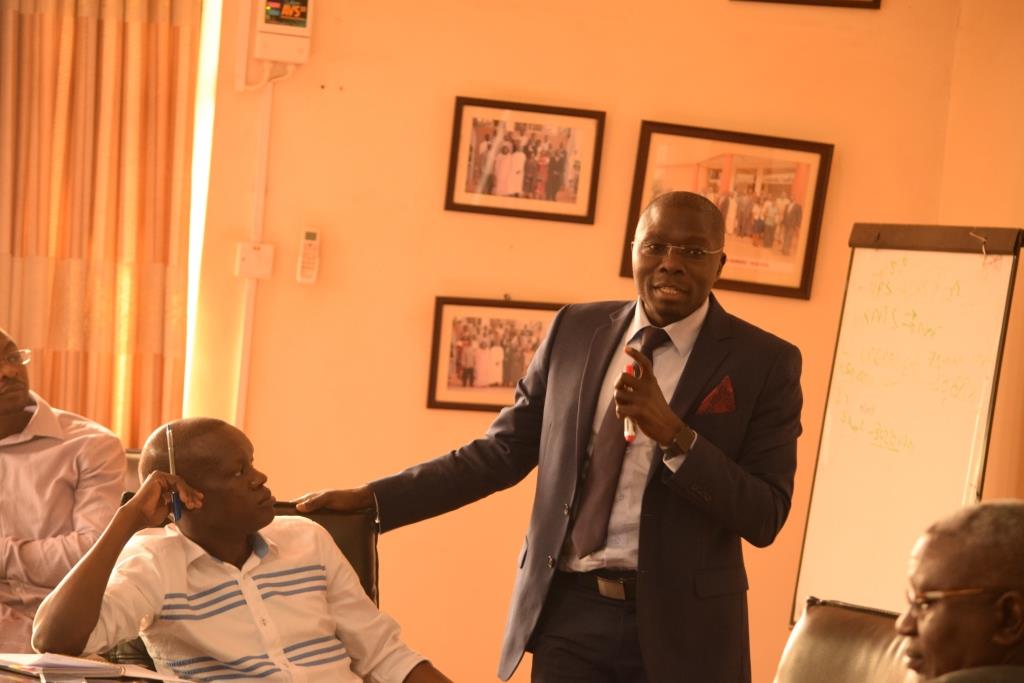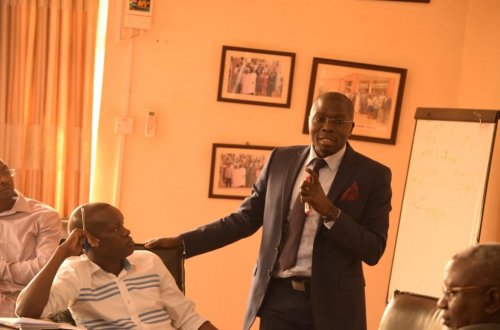What is the role of the Board? The board’s mandate is to provide strategic guidance that includes strategic direction and strategic oversight. Strategic direction is to identify the strategic bullseye – the ambition of the organization. While strategic oversight is about risk management and compliance for effective monitoring and control. A strategy is a plan of action designed to achieve one or more overarching long-term organizational goals and aims. For the board, you need to focus more on the process and not the outcome. It is important to note that plans are nothing. Planning is everything. So, having a strategic…
ICGU 14th Public Lecture Shaping the Corporate Governance Agenda in Uganda
KAMPALA, 8th August 2019: The Institute of Corporate Governance conducted the 14th Public Awareness Lecture with great success. Themed, “Corporate Culture: Enforcement, Values, and the Practice – Fostering Uganda’s Middle Income Status.” The lecture was held at Kampala Serena Hotel, Victoria Hall. Preamble The Public Lecture was sponsored by Centenary Bank and Opportunity Bank. It attracted over 150 top executives in the public and private sectors. Christine Kyeyune Kawooya, Chief Executive Officer of ICGU opened the floor by welcoming H.E. President of the Republic of Uganda, represented by Hon. Muruli Mukasa, Minister of Public Service. After observing all protocols, she…
The future of the Uganda Red Cross Society
A speech by Mustapha B Mugisa, an outgoing URCS Board member, 29th July 2019 The winds of change have not spared the Red Cross Movement. The conditions that existed at the time the Red Cross Movement was founded in 1863 in Geneva Switzerland have changed significantly. The 4th industrial revolution has changed the way people work and communicate. This is a new reality. The Red Cross Society and Red Cross Movement are changing globally. The change is a result of several shifts that all stakeholders must embrace without delay. The International Red Cross has articulated the future of Red Cross…
Death by poor governance, part 1
I used to sit on the Board of a certain institution which I am not at liberty to disclose for confidentiality reasons. I served on the board for three years to April 2015. Looking back, this was a classic dysfunctional board as it was more about debate, brainstorming and figure pointing at the executive and less of decision making. It was normal practice for members to receive board papers on the same day of arriving at the meeting, and where board-papers had been disseminated in time, members read the board briefs as the meeting progressed. Seemingly easy decisions took time…
Is your meeting Agenda making people sleep on you? part 1
Have you ever attended a meeting where the Chair kept on talking and talking until the team members switched off on him? if you called to meet people, why not give them the opportunity to meet. There are four main reasons why meetings may be called. You are free to add another reason you may know. Informational – to inform a team about something – or departmental updates. News updates for handling a crisis or urgent issues Decision meetings – to decide on a critical issue or strategy Other – to answer specific questions Effective meetings have short agendas as…
















